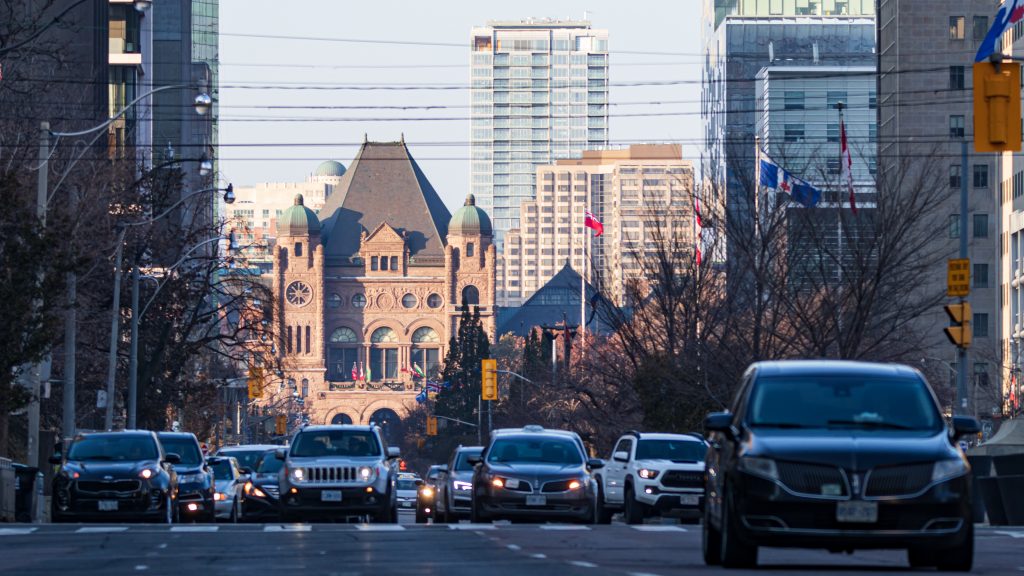Our union and its approximately 30,000 members across the province have always been interested in the overall economic direction of Ontario.
It is no secret that this has been another incredibly tough year for businesses across many sectors and in particular, small businesses.
Small businesses contribute to the fabric of communities across Canada and we understand the need to ensure businesses, and particularly small businesses, come back stronger post-pandemic. Although construction has numerous large firms, the vast majority of contractors affiliated with the Carpenters’ Union would fall under the definition of small businesses and so the economic health of these types of businesses is a clear priority for both our union and its members.
Increase spending in infrastructure
The Carpenters’ believe investments in infrastructure are crucial to a strong economic recovery for Ontario and Canada as a whole. In the short- to medium-term, infrastructure investments directly create jobs and put people back to work, which is something that is obviously needed now given our, somewhat, unsteady economy.
Just as importantly, however, if properly targeted, such investments in infrastructure can clearly help shape Ontario’s economic direction for the longer term.
For example, such targeted infrastructure investments can be used to support a greener economic recovery. A growing trend in the construction industry, which the Carpenters’ supports, is a push towards mass timber building solutions.
Mass timber involves using timber more prevalently in major construction projects as opposed to other non-renewable materials. It can also be used for residential builds, as noted in the report of the Ontario Housing Affordability Task Force.
Infrastructure investments using mass timber building solutions will not only support immediate areas where the infrastructure is being built, but also smaller northern Ontario communities that harvest and manufacture timber products.
In addition, investments in infrastructure could also provide a much-needed boost to Ontario’s manufacturing sector, which provides the necessary machinery and materials to fabricate these timber products.
This approach, to support a “green economic recovery” post-COVID, would contribute to building a symbiotic relationship between the land development/construction industry in our cities and resource based communities.
Another critical area for Ontario’s green economic recovery, which we believe deserves government investment and support, is the environmentally-friendly retrofitting of buildings.
This type of project results in significant reduction in energy consumption and is a cost-effective and eco-friendly alternative to the demolition of existing structures and rebuilding from scratch.
Retrofitting can significantly reduce greenhouse gas emissions and further the decarbonization initiatives that have been implemented by Toronto City Council and in other areas of the province. The retrofitting of the various “civil service blocks” around Queen’s Park presents an example of such initiatives in action. Providing incentives to the private sector to take similar action will benefit our province in both the short- and long-term.
Transit oriented communities
Further, we would strongly support any and all additional infrastructure initiatives that contribute to Ontario’s sustainability by way of developing transit-oriented communities.
Obviously, Ontario will always need more highways and roads but, with the urban sprawl that the GTA is both currently experiencing and is projected to undergo in the next few decades, transit infrastructure has been particularly targeted through new GO Transit stations and LRT lines.
The possibilities for nascent, new style, neighbourhoods surrounding such transit initiatives should be fully explored and promoted. This could in turn contribute to healthier, more environmentally conscious, and more inclusive, community hubs.
In this respect, such low- to mid-rise housing along these transit corridors could also offer sustainable solutions to at least some of the housing shortages which currently exist in the GTA’s urban communities, along with creating countless jobs in the construction industry.
As noted in the report of the Ontario Housing Affordability Task Force, it is critical to the maximization of these transit infrastructure investments to provide affordable housing so people can move nearby.
Social infrastructure and nextgen workforce
Along with our commitment to building physical infrastructure, we believe it is just as important to ensure the necessary social infrastructure is in place to form the foundation for this development, namely by investing in apprenticeship training.
Not only is Ontario currently experiencing a skilled labour shortage, but according to a recent report by BuildForce Canada, around 259,000 construction workers (22 per cnet of the construction labour force) will be retiring in the next 10 years.
The time is now to invest in the next generation of skilled tradespeople in our province.
Through our training school, the College of Carpenters and Allied Trades, the Carpenters’ offer pre-apprenticeship training, apprenticeship training and over 40 concurrent education courses to help our members take the next step.
However, since 2000, we have self-funded our programs without any support from the provincial government. This budget is the perfect opportunity to right the training commitment to the construction industry that has been held back over the last two decades.
Taking on tax fraud and wage theft
In conclusion, we want to make clear the views of our union and our members concerning “taxes.”
The Carpenters’ realize in order for any of the targeted investments discussed above to be possible, it is necessary for all levels of government to be receiving adequate revenues.
Making sure this is the case with all Ontarians “paying their fair share” is a priority for us.
According to the Ontario Construction Secretariat, it is estimated the Province of Ontario and the federal government lost between $1.8 billion and $3.1 billion annually in revenues over a five-year period due to contractors operating in the “underground economy” and by registering their workers as “independent contractors” as opposed to registering them as what they really are, namely “employees.”
Carpenters, painters, floor covering installers, tile setters and general construction labourers are particularly vulnerable to this illegal and socially detrimental practice.
Paying taxes is obviously not everyone’s favourite thing to do, but this should not mean that our entire province should lose out just because some contractors don’t want to play by the rules.
Because this is such a significant problem for the construction industry as a whole, from April 11 to 16, the Carpenters’ Union, across North America, will be engaging in Tax Fraud Days of Action.
As a union we believe in fighting against the underground economy and ensuring all levels of government are adequately funded.
Our members pay their taxes and we believe everyone else should as well.
Tony Iannuzzi is executive secretary treasurer and Mike Yorke is president of the Carpenters’ District Council of Ontario. Send Industry Perspectives Op-Ed comments and column ideas to editor@dailycommercialnews.com.











Recent Comments
comments for this post are closed